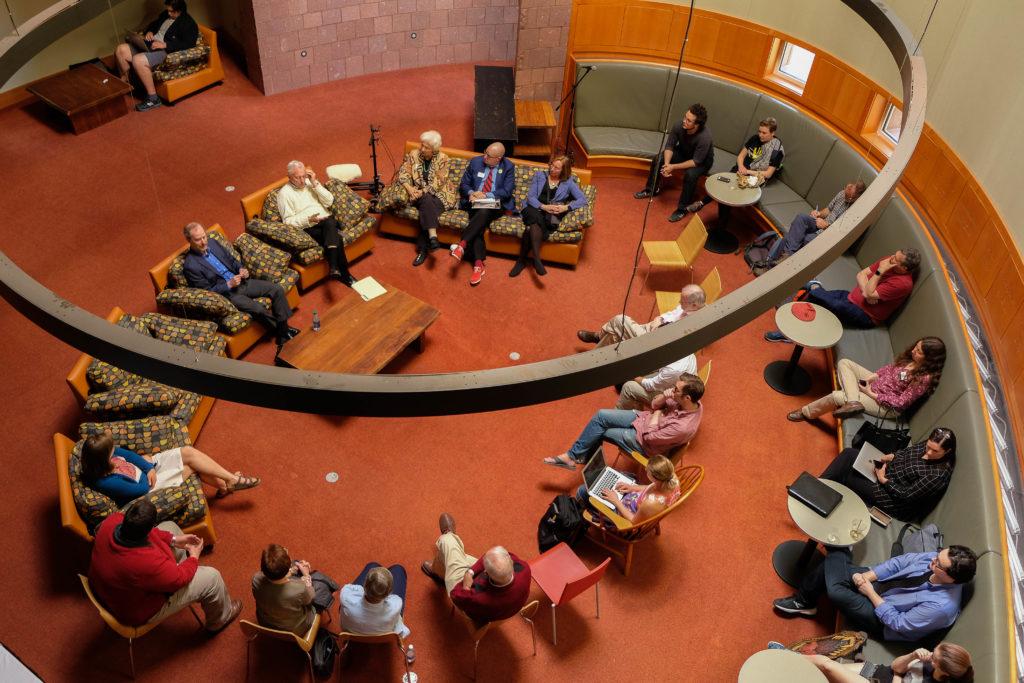
On April 28, 2018, the Fossil Fuels and Climate Impact Task Force paneled by the Board of Trustees announced their conclusions regarding the issue of divestment from fossil fuels. According to their official report released on the same day, there was “strong agreement among the members [of the Task Force] that climate change is a critical global threat, with the use of fossil fuels as a primary contributor.”
Divestment, however, would not be their solution. In their report, the Task Force specifically recommended against divestment as a means of combating climate change, writing that the action of divestment would “introduce significant investment risk in the endowment while having little, if any, direct impact on climate change.”
Instead of full fossil fuel divestment, the Task Force recommended that the College ought to bolster its existing capabilities, recommending several broad categories of action in a Campus Memo sent April 28, 2018. These would range from reducing the College’s carbon footprint through the implementation of a Sustainability Plan, institutional measures including the creation of a Sustainability Standing Committee and investment-based measures like shareholder engagement, focusing on the social and environmental applications of the College’s endowment and the possible creation of a “fossil fuel-free fund” for donors.
This decision comes on the heels of a wide range of student activism agitating for divestment, including the February 2017 occupation of the President’s Office by approximately 150 students.
Divestment as a political protest tool has long been a locus of campus activism, particularly at the College. In the 1980s, Grinnell activists demanded divestment from corporations active in South Africa to protest racist apartheid policies in the face of trustee and administration disinclination, at one point constructing a model “shantytown” in the middle of campus to illustrate the lasting economic effects of racial segregation in that country.
In 1985, the Board of Trustees voted to divest some of its holdings in South Africa and, by 1986, The New York Times listed Grinnell College as one of dozens of institutions “committed … to selling all stock in companies that do business in South Africa.”
In a Special Campus Memo from April 24, 2017, Chair of the Board of Trustees Patricia Finkelman ’80 regarded the “discontent” emerging from the issue of divestment as key to the decision to impanel a Task Force on the issue.
The campus activist community reacted with disdain to the Task Force’s recommendations. Quinn Ercolani ’20, who has long been involved with pro-divestment activism, characterized the mood of student activists in the wake of that decision as “disappointed and angry.”
“The divest movement was asking for one thing, and that’s the one thing the Task Force explicitly recommended not happen … there’s this step that hasn’t been taken, and that step has moral and ethical ramifications to it,” Ercolani said.
Lucy Nelson ’20, a member of the Advisory Committee to the Task Force and co-leader of the divestment movement team this year, echoed these sentiments in an email to The S&B. In particular, Nelson described the false dichotomy of divestment versus sustainability efforts that many activists found implicit in the findings of the Task Force. “[Student activists] are also frustrated at the manner in which sustainability has been posed as an alternative to divestment, pitting one strategy against another without examining the ways in which their effects may be distinct yet equally effective,” Nelson said.
“Grinnell College did not choose to continue to invest in fossil fuels because this would not be an effective tactic; it did so because the values of the individuals who have the final say align with those who perpetuate injustice, regardless of the values of the student body,” said Nate Williams ’20, a longtime campus activist.
In the same Special Campus Memo, Finkelman described the goals of the Task Force as a “broad-based, transparent process of intellectual discovery” which would promote a rich civil and intellectual debate on the subject of climate change.
As part of this “process,” pro-divestment forces took on an educational role in addition to more overt political action, presenting evidence in favor of divestment policies to the Task Force and Board, more generally. However, Grinnell’s student activists feel the moral, ethical, and political evidence they provided to the Task Force was disregarded in that body’s ultimate decision against divestment. Williams was particularly vocal about this issue.
“[T]his is clear evidence that the trustees’ framing of real political issues such as divestment as ‘intellectual exercises’ in gathering research, presenting arguments and generally trying to appeal to the reasonability of the Task Force is nothing other than a method of calming us down. The research and expertise presented clearly demonstrated the historical and current efficacy of divestment as well as the inability of shareholder activism to create meaningful change,” Williams said.
Williams ultimately regards the decision as antagonistic to student activist efforts. “This decision has confirmed that the task force was formed to quell student momentum and that meaningful change can only be generated through adversarial pressure — not through dialogue,” he said.






























































